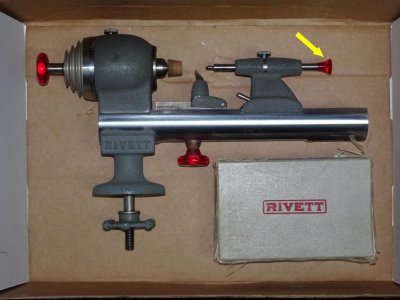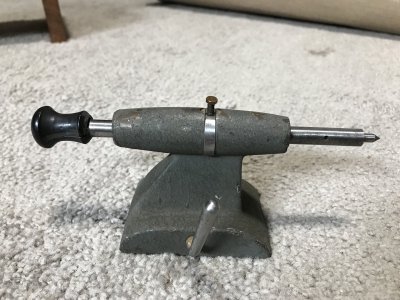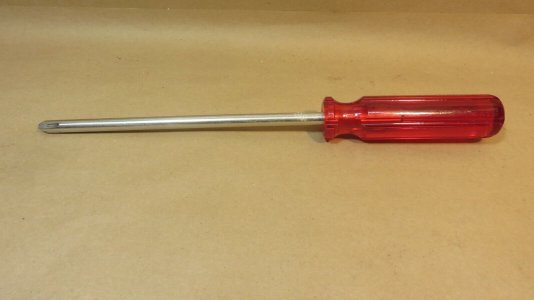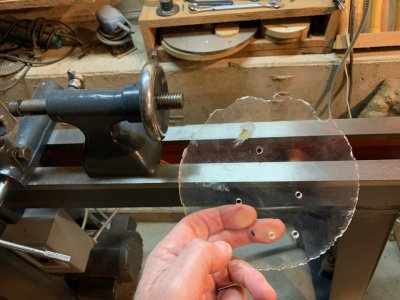- Joined
- Sep 24, 2012
- Messages
- 484
I want to re-create a small plastic part from an ultra-rare tiny watchmakers lathe, the Rivett model 1R, which was only manufactured post WW2, between 1946 and about 1950. Estimates say only about 500-600 were ever made & sold. I have #195.
My #195 needs to be cleaned and restored, but two parts are missing from the tailstock which prevent the lathe from being complete.
The part I'm asking for help here, is the little knob at the end of the tailstock runner.
The thing is, the knob is made from a transparent red plastic - from what I can tell, the plastic was known as Tenite or Permaloid. The Rivett 1R came with three different knobs made from the same material - my 1R has the other two knobs, but lacks the TS one.
Apparently, right about the same time, the tool company Millers-Falls came out with some tools with handles made from the same stuff.
I found a nice example of a screwdriver with the Permaloid handle in the color I want, but my question is: realistically, can that material be turned in a lathe? I'm used to turning steel, iron and brass, even wood once. But plastic? Yikes.
Right now there's a Millers-Falls screwdriver on eBay for cheap - but I'd rather know it can be done before I even try it.
I'm attaching pics of:
A pristine Rivett 1R in perfect, never used condition. See yellow arrow for the knob I'd like to make.
My tailstock, you can see somebody tried to make a knob from some blackish material. Yuck!
The screwdriver I might buy, if it's even remotely possible.
Opinions welcome.
My #195 needs to be cleaned and restored, but two parts are missing from the tailstock which prevent the lathe from being complete.
The part I'm asking for help here, is the little knob at the end of the tailstock runner.
The thing is, the knob is made from a transparent red plastic - from what I can tell, the plastic was known as Tenite or Permaloid. The Rivett 1R came with three different knobs made from the same material - my 1R has the other two knobs, but lacks the TS one.
Apparently, right about the same time, the tool company Millers-Falls came out with some tools with handles made from the same stuff.
I found a nice example of a screwdriver with the Permaloid handle in the color I want, but my question is: realistically, can that material be turned in a lathe? I'm used to turning steel, iron and brass, even wood once. But plastic? Yikes.
Right now there's a Millers-Falls screwdriver on eBay for cheap - but I'd rather know it can be done before I even try it.
I'm attaching pics of:
A pristine Rivett 1R in perfect, never used condition. See yellow arrow for the knob I'd like to make.
My tailstock, you can see somebody tried to make a knob from some blackish material. Yuck!
The screwdriver I might buy, if it's even remotely possible.
Opinions welcome.





